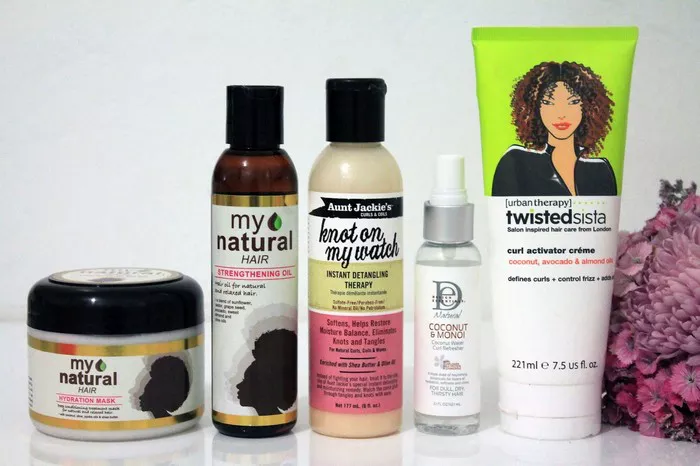Hair oiling has been a popular practice for centuries, known for its ability to nourish and condition the hair, leaving it shiny and lustrous. However, the question often arises: “How often should you oil your hair?” Finding the right frequency for hair oiling can be essential to maintain a healthy scalp, promote hair growth, and prevent excessive oil buildup. In this article, we will explore the factors that influence the frequency of hair oiling and provide valuable insights to help you establish a hair care routine that harnesses the benefits of hair oiling without overwhelming your scalp. Join us as we delve into the world of hair oiling and discover the secrets to achieving nourished and vibrant tresses.
Understanding the Benefits of Hair Oiling
Scalp Nourishment:
Hair oiling provides essential nourishment to the scalp, helping to moisturize and balance its natural oils. This can alleviate dryness, reduce itchiness, and promote a healthier scalp environment.
Hair Conditioning and Protection:
Hair oils can penetrate the hair shaft, providing moisture, strengthening the strands, and protecting against damage caused by environmental factors, heat styling, and chemical treatments. They can also help reduce frizz, add shine, and improve hair manageability.
Factors Influencing Hair Oiling Frequency
Hair Type and Texture:
Different hair types and textures have unique oil production levels and needs. For individuals with naturally oily hair, less frequent oiling may be required, while those with dry or coarse hair may benefit from more frequent oiling to boost hydration.
Scalp Condition:
Consider the condition of your scalp when determining how often to oil your hair. An excessively oily scalp may require less frequent oiling, while a dry or flaky scalp may benefit from more regular oil treatments.
Climate and Environmental Factors:
The climate you live in and environmental factors such as pollution, humidity, and sun exposure can influence the frequency of hair oiling. In drier climates, more frequent oiling may be necessary to combat dryness, while in humid environments, less frequent oiling may be preferred.
Establishing an Effective Hair Oiling Routine
Listen to Your Scalp:
Pay attention to how your scalp and hair respond to oiling. If your scalp feels excessively oily or weighed down, you may be oiling too frequently. Conversely, if your hair feels dry and lacks luster, you may need to increase the frequency of oiling.
Choose the Right Hair Oil:
Select a hair oil that suits your hair type and addresses your specific concerns. Popular choices include coconut oil, argan oil, jojoba oil, and almond oil, each offering unique benefits. Experiment with different oils to find the one that works best for your hair.
Apply the Oil Properly:
Apply a small amount of oil to your palms, rub them together to warm the oil, and gently massage it into your scalp and hair. Focus on the mid-lengths and ends, as they are prone to dryness and damage. Avoid applying excessive amounts of oil, as this can lead to greasiness.
Consider Overnight Oil Treatments:
For deeper conditioning, you can try overnight oil treatments. Apply the oil generously, cover your hair with a shower cap or towel, and leave it on overnight. Wash your hair thoroughly the next morning to remove any residue.
Maintaining Hair and Scalp Health Beyond Hair Oiling
Balanced Diet and Hydration:
Maintain a balanced diet rich in vitamins, minerals, and proteins to support overall hair health. Additionally, drink plenty of water to stay hydrated, as hydration plays a crucial role in hair health.
Regular Cleansing:
Ensure you cleanse your hair and scalp regularly to remove excess oil, dirt, and product buildup. Use a gentle shampoo and conditioner that suit your hair type to maintain a clean and healthy scalp.
Protecting Hair:
Minimize heat styling, protect your hair from sun damage, and avoid excessive use of harsh chemicals or styling products. Heat protectants and UV protection sprays can help shield your hair from damage.
Conclusion:
In conclusion, the frequency of hair oiling depends on several factors, including hair type, scalp condition, and environmental factors. Finding the right balance is crucial to reap the benefits of hair oiling without overwhelming the scalp. Listen to your scalp’s needs, choose the right oil, and establish a hair oiling routine that promotes nourished and vibrant tresses. Remember to consider other aspects of hair and scalp care, such as regular cleansing and a balanced diet, to maintain overall hair and scalp health. By embracing a holistic approach to hair care, you can enjoy the advantages of hair oiling and achieve healthy, beautiful hair that radiates vitality and shine.
Related topics:
- How to use castor oil for hair growth and thickness: A Simple Guide
- How to use coconut oil for hair growth and thickness: A Full Guide
- How to do a scalp massage: A Step-by-Step Guide


